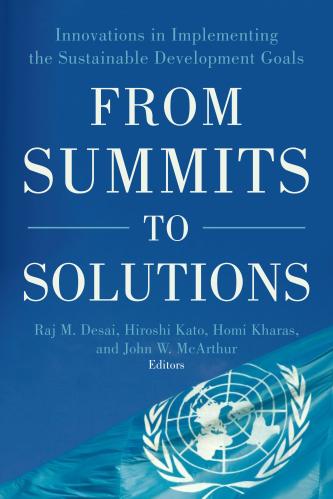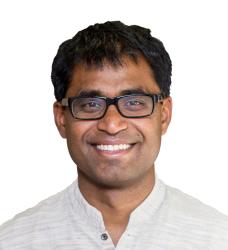This blog is adapted from ‘A People’s Agenda: Citizen Participation and the SDGs,’ the author’s chapter in a new Brookings Press book, “From Summits to Solutions: Innovations in Implementing the Sustainable Development Goals“.
The problem with the Millennium Development Goals (MDGs), was that no one ever lost their job for failing to meet an MDG target.
When I say this at high-level meetings, participants shift uneasily in their seats. Their unease really shows when I ask why, if we truly want the Sustainable Development Goals (SDGs) to succeed, would we not hold accountable those of us in governments, intergovernmental agencies, global business, or civil society organizations (CSOs) responsible for achieving them—even to the point that our jobs would depend on it?
My provocation seems absurd because we do not (yet) see the SDGs as having real political bite. They are not legally binding, their complexity and interconnectedness make apportioning blame (or credit) difficult, and they arise out of an intergovernmental system that seems ineffective at accountability.
To me, one of the key priorities, especially for civil society working on sustainable development, is to deliver an accountability revolution.
Civil society at every level—from local to national to global—needs to play its oversight or watchdog role effectively. We need to make sure that ambitious goals are not watered down or cherry-picked, and that states embrace the new universalist, human rights-based approach that is required of them.
Holding governments and the private sector to account will be essential.
One example of how civil society can drive accountability is through investment in data. The MDGs achieved something remarkable by entrenching the idea of measuring progress through robust metrics, partly to measure effectiveness for donors, but more importantly, to promote greater accountability on international development objectives. The SDGs may follow in the tradition of the MDGs, but their requirements in terms of volume, complexity, and breadth of data go far beyond anything previously attempted in the development sector.
SDG metrics are still in their infancy, but already there is widespread consensus that significant investment in the capacity of all development actors—including citizens—to generate, use, and curate data is crucial. If we are to have any hope of achieving the new vision, robust new metrics, fed by nothing less than a data revolution, will be essential.
With over 200 distinct indicators to quantify, measuring progress toward the SDGs is a daunting task, but one that comes with opportunity: the opportunity to create a new approach to monitoring and accountability that puts citizens at its core. New forms of citizen-generated data—produced by people, or their organizations, to monitor, demand, or drive change on issues that affect them—will revolutionize the successful implementation of this agenda.
New technologies offer exciting new ways for citizens to generate and use data democratically and creatively. Citizen-generated data can monitor commitments made by governments, as in the case of Promise Tracker in Brazil. They can feed evidence from the ground up into higher-level policy debates as the ocean litter program Dive Against Debris is doing. Importantly, data can verify official narratives and datasets, empowering people and giving them a way to actively engage with political processes that might otherwise seem far removed (for example, Float Beijing in China, which allows citizens to monitor local air quality themselves).
For CSOs involved in sustainable development, the SDGs present some significant challenges and opportunities. In an era of disintermediation and disruption of existing power dynamics, no longer can it be assumed that a few, relatively well-resourced international NGOs will be at the leading edge of citizen action around sustainable development. We need a new set of actors, including many more grounded in local action—whether it is the soup kitchen in the developed world or the women’s rights organization in the developing world—who can effectively translate a global agenda to local issues and, in turn, feed local concerns into global monitoring frameworks.
Promoting such trans-local action will increase the chances of civil society raising political pressure on both local actors (who will feel the power of locally led mobilization) and global actors (who will see evidence grounded in local realities) to act. Indeed, broadening participation in this process beyond the relatively few CSOs who are currently active around the SDGs to a wider set of civil society actors will be critical to delivering any sort of accountability revolution.
Successfully implementing the 17 SDGs requires a new way of working with more meaningful multi-stakeholder partnerships. Members of civil society need to play their rightful and multifaceted roles in sustainable development–as campaigners, as generators of data, as implementers, and as innovators. Part of their role is to convince key power-holders—from government officials to business leaders—that they are ultimately answerable to citizens for the delivery of Agenda 2030.
That is, their jobs depend on it.





Commentary
Should not meeting the Sustainable Development Goals get you fired?
July 17, 2018